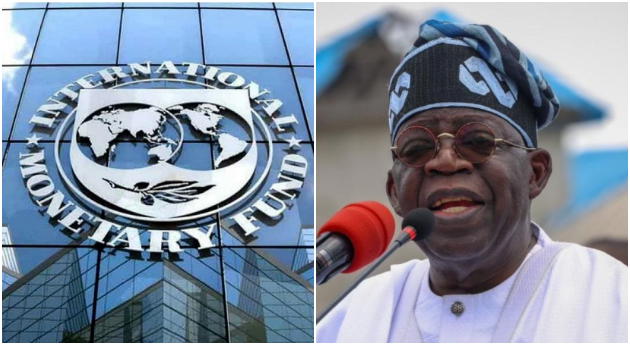*Says high debt costs crowding out development spending
*Says has supported Africa with $69bn since 2020
By Emeka Anaeto, Business Editor; Babajide Komolafe, Economy Editor; & Emma Ujah, Abuja Bureau Chief, in Washington
WASHINGTON, D.C. — The International Monetary Fund (IMF) has urged Nigeria to deepen its ongoing macroeconomic and fiscal reforms, stressing that stronger domestic revenue mobilisation and transparent debt management are critical to sustaining growth and protecting vulnerable populations amid tightening global financial conditions.
Dr. Abebe Selassie, Director of the IMF’s African Department, stated this while presenting the Regional Economic Outlook for Sub-Saharan Africa at the ongoing IMF–World Bank Annual Meetings in Washington, yesterday.
He said Africa’s growth would remain steady at 4.1 per cent in 2025, with a modest pickup expected the following year. However, he warned that the region—including Nigeria—faces mounting pressures from debt servicing costs, declining oil prices, and limited access to external financing.
“Nigeria, like many countries in the region, has made commendable progress in macroeconomic stabilisation and reform implementation. However, the pressure points remain — rising debt service costs are crowding out development spending, and fiscal space is tight,” Dr. Selassie said.
He identified domestic revenue mobilisation as the foremost priority for Nigeria and other African economies, urging governments to modernise tax systems through digitalisation, improve compliance, and rebuild public trust in fiscal institutions.
“It is not just about increasing taxes; citizens must see that revenues are being used effectively,” he stressed. “Tax reforms must be both efficient and equitable, with clear evidence that funds are going into education, health, and infrastructure.”
Oil Price Slump and Fiscal Pressure
Dr. Selassie noted that while commodity prices such as gold and copper remain elevated, oil prices—Nigeria’s main export—have been trending downward, creating fiscal pressures for the country.
“The divergence in commodity prices means that resource-dependent countries like Nigeria are more vulnerable,” he said. “This reinforces the need for diversification and domestic resource mobilisation to reduce dependence on oil revenues.”
Debt Management and Transparency
The IMF official also called for improved public debt transparency, urging Nigeria to publish comprehensive debt data and strengthen public financial management to reduce borrowing costs.
“Publishing full debt statistics and reinforcing budget oversight are crucial steps. These measures will help attract more affordable financing and rebuild external buffers,” he explained.
He added that around 20 countries in Sub-Saharan Africa are at high risk of debt distress, calling for prudent debt management and reform of state-owned enterprises to prevent fiscal leakages.
Tackling Illicit Financial Flows
Responding to a question on illicit financial flows, Dr. Selassie said such outflows—ranging from corruption to trade misinvoicing—continue to deprive countries like Nigeria of vital revenues.
“These flows must be addressed through targeted reforms — strengthening financial oversight, improving transparency, and tightening loopholes that allow funds to leave the continent undetected,” he said, advising that the sources of such illegal outflows must be identified and addressed through reforms.
busi
The post IMF to Nigeria: Strengthen reforms, mobilise domestic revenue for growth appeared first on Vanguard News.

